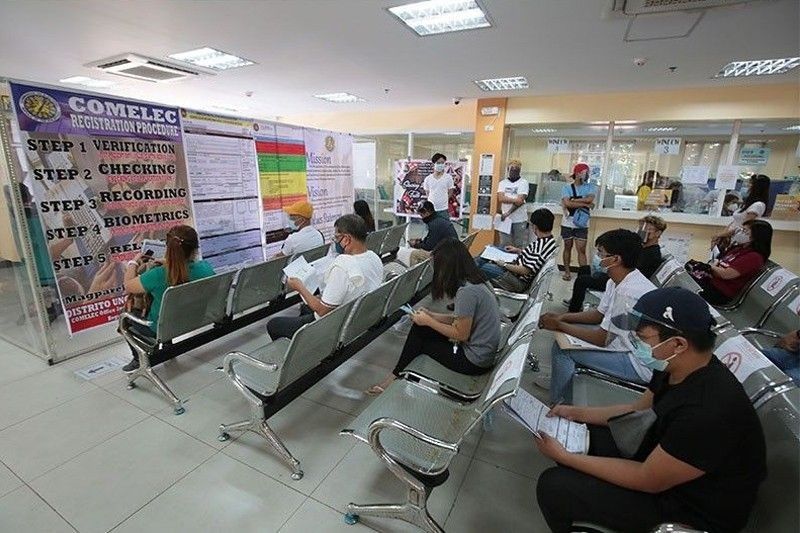The 2022 elections: Undoubtedly different, yet unsurprisingly familiar

The May 9, 2022 general elections will be the country's first national election conducted during a pandemic. And while the circumstances make it unique, familiar facets of Philippine elections endure.
The COVID-19 pandemic has caused unprecedented challenges to public health and national economies. Global deaths due to the virus currently stand at just under 5 million and many economies, including ours, continue to suffer.
In addition to public health and the economy, however, the pandemic has also impacted democracy. According to a Freedom House report, since the coronavirus outbreak began, the condition of democracy and human rights has worsened in 80 countries, with a particularly sharp deterioration in struggling democracies and highly repressive states. The report also found that many national elections were disrupted in some way by COVID-19.
Some of these elections faced accusations of politicized election administration decisions. But at the same time, there are countries like South Korea and Singapore that were able to conduct in-person voting successfully and safely. While not as rich or as small, the Philippines is in a position to take lessons from the experiences of other countries in conducting elections during a pandemic.
So far, our Commission on Elections has taken several steps to prepare for 2022. It extended the voter registration and had strict health protocols during the filing of candidacy. It is also expected that the Comelec will continue to enforce health protocols during the campaigning period. The Commission's Dir. James Jimenez said it would soon be releasing campaign guidelines that introduce "major changes" to the accustomed campaign practices.
On election day, in addition to basic health protocols, a Voters Assistance Desk is being introduced to help voters find their room assignments, their precinct assignments, as well as their sequence number. There will also be special polling places for senior citizens, persons with disabilities and pregnant women. Protocols will also be in place to safely accommodate voters that show up at polling sites with COVID-19 symptoms.
The Commission is also in the process of refurbishing its vote-counting machines (VCMs) and having its source code reviewed by civil society groups. VCMs help increase the transparency and reliability of election results . But in the context of the pandemic, VCMs also serve the additional function of reducing the time voters spend in precincts.
Similar to previous elections, there is also growing concern about disinformation's impact on its outcome.
For four consecutive years, the Philippines has slipped in the Reporters Without Borders' (RSF) World Press Freedom Index. RSF cited the closure of the country's biggest TV network, ABS- CBN, the online harassment of journalists orchestrated by pro-Duterte troll armies, and the "red- tagging" of media professionals as reasons for the country's ranking drop.
This weakened state of Philippine media institutions has allowed bad actors to use disinformation to gain electoral support.
Since its social media-fueled 2016 elections, the Philippines has come to be labeled "patient zero" for digital disinformation. When Facebook took down fake accounts and pages last year for "coordinated inauthentic behavior," it even traced one of the networks back to the Philippine Government. Fifty-seven accounts, 31 pages, and 20 Instagram accounts with an accumulated 276,000 followers on Facebook and 55,000 on Instagram were traced back to the Philippine Military and Police.
More recently, it was also reported that the Facebook pages of some Filipino politicians had fake followers. For example, one social media user found that 47.4% of Ferdinand Marcos Jr's (@bongbong.marcos) followers were fake. A 2022 presidential candidate, Ferdinand Marcos Jr., the son of the late dictator Ferdinand Marcos Sr., has gone through great lengths to rebrand his and his family's image to win over voters.
This continuing use of disinformation to confuse and manipulate voters highlights the vital role of civil society-driven voter education in empowering voters and combating election-related disinformation. However, just as the election playing field has changed, so should voter education.
Topics should go beyond the basics of voting and broadened to include understanding campaign financing, the dangers of disinformation and historical revisionism, and the pitfalls of personality and dynastic politics.
To be effective, however, voter education must also adapt to its audience. The way content is created and consumed, especially on social media, continuously evolves. Voter education content must keep pace and maximize these new platforms to engage and educate voters.
In addition to the prospect of voting during a pandemic and the challenge of parrying disinformation, Filipino voters must also think long and hard about who they'll vote to lead our country.
According to a Pulse Asia survey commissioned by Stratbase ADR Institute, the top characteristics of a winning candidate are "concern for the poor, pro-poor," "not corrupt," and "Trustworthy and honest." The survey also found that Filipinos want their elected leaders to have clear solutions for "controlling inflation," "increasing the pay of workers," and "creating more jobs."
These results show that the familiar gut issues such as economic hardship and fighting corruption remain most important to Filipino voters. Hence, Filipinos should base their vote on candidates' track records and proposed programs instead of personality.
So, while the 2022 elections may be unique in many ways, one thing that remains inescapable is the fact that Filipinos must cast their votes wisely– to choose leaders who will uphold the rule of law, be responsive to public needs and issues, and stand for integrity, transparency, and accountability.
The work for deepening democracy continues, and we all have a part to play in it. May we remember this as we move towards the 2022 elections, and let us ensure that democracy goes on.
Paco Pangalangan is the executive director of think tank Stratbase ADR Institute.
- Latest



























